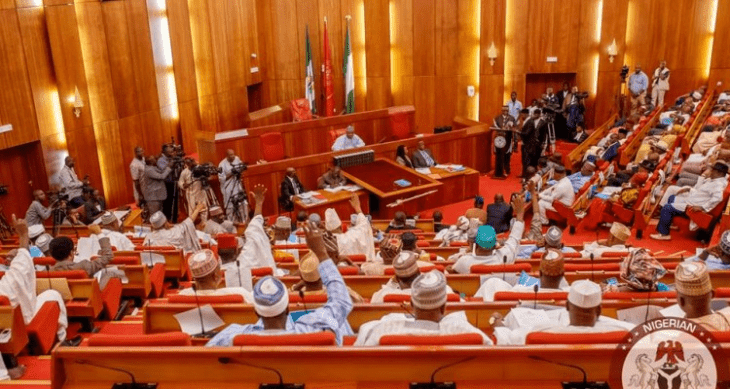
The Nigerian Senate is upper chambers of the National Assembly of Nigeria, the other being the House of Representatives. It is made up of 109 members, with three senators representing each of the 36 states of Nigeria and one senator representing the Federal Capital Territory. The Senate is responsible for making laws, approving budgets, and providing oversight of the executive branch of government.
It is important to note that the functions of the Senate are defined by the Nigerian Constitution and may be subject to amendment over time.
Functions of the Nigerian Senate
The functions of the Nigerian Senate are as follows:
1. Legislative Role:
The primary function of the Senate is to make laws for the peace, order, and good governance of Nigeria. Senators propose, debate, and pass bills that cover a wide range of issues, including economic matters, social policies, security, and governance.
2. Representation:
The Senate represents the various states and diverse interests within Nigeria. Each of the 36 states is represented by three senators, regardless of population size, ensuring that every state has equal representation in the upper chamber. This helps to promote national unity and give a voice to different regions.
3. Oversight:
The Senate has the power to oversee the actions of the executive branch of the government. It exercises this oversight function by scrutinizing the activities of government agencies, ministries, and departments to ensure transparency, accountability, and good governance.
Read Biography of Godswill Akpabio, Career and Personal life
4. Confirmation of Appointments:
The Senate is responsible for confirming or rejecting the appointments made by the President of Nigeria. This includes confirming the appointments of ministers, ambassadors, heads of government agencies, and members of statutory bodies. Confirmation hearings allow the Senate to assess the suitability and qualifications of the nominees.
5. Ratification of Treaties:
The Senate is involved in the process of ratifying treaties and agreements entered into by the Nigerian government. Before any treaty becomes legally binding, it must be presented to the Senate for ratification. This ensures that international agreements are consistent with Nigeria’s interests and obligations.
6. Budgetary Control:
The Senate participates in the budgetary process of the country. It reviews and approves the annual budget proposed by the executive branch, ensuring that public funds are allocated appropriately and in line with national priorities.
7. Mediation and Conflict Resolution:
In cases of legislative disputes or conflicts between the two chambers of the National Assembly (the Senate and the House of Representatives), the Senate acts as a mediator and helps to resolve such conflicts amicably.
8. Constituent Services:
Senators play a role in representing the interests and concerns of their constituents. They receive petitions, complaints, and requests from citizens and work towards addressing them through legislation or advocacy.
